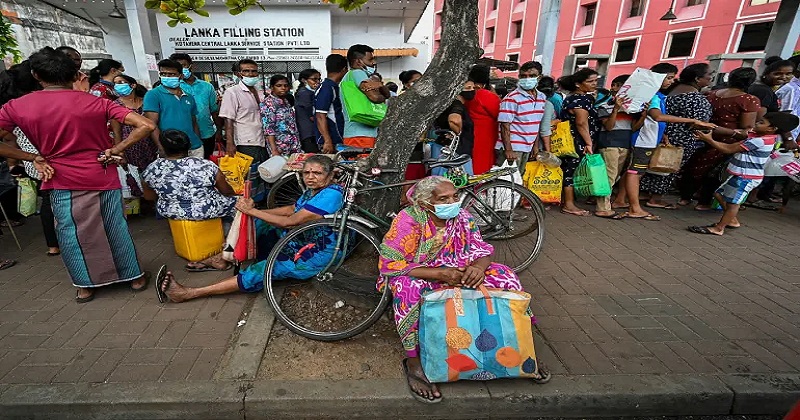
The energy minister appealed to the country’s ex-pats to send money home through banks to finance new oil purchases as cash-strapped Sri Lanka extended school closures for one week on Sunday because there isn’t enough gasoline for teachers and parents to bring children to classes.
A massive foreign debt has left the Indian Ocean island with no vendors ready to supply fuel on credit. According to officials, the existing stockpiles, which are only enough for a few days, would be used for important services such as health and port employees, public transportation, and food distribution. ‘It’s difficult to find money. It’s a great problem,’ Power and Energy Minister Kanchana Wijesekera told reporters.
He stated that the government has ordered fresh fuel stockpiles and that the first ship carrying 40,000 metric tonnes of diesel is due to arrive on Friday, with the first ship carrying gasoline arriving on July 22. Several further gasoline cargoes are on the way. However, he stated that officials are trying to obtain $587 million to pay for the fuel. Wijesekera stated that Sri Lanka owes around $800 million to seven petroleum suppliers.
Schools were closed countrywide for a day last month owing to gasoline shortages and had stayed closed in metropolitan areas for the previous two weeks. The schools will be closed till Friday. Authorities also announced nationwide power outages of up to three hours per day beginning Monday due to insufficient fuel supplies to power-producing units. For months, massive power outages have plagued Sri Lanka’s economy, coupled with significant shortages of commodities such as cooking gas, medication, and food imports.
Wijesekera stated that the fundamental issue is a lack of dollars and urged the approximately 2 million Sri Lankans working overseas to return their foreign exchange earnings home via banks rather than irregular routes. He stated that worker remittances, which had previously averaged $600 million per month, had fallen to $318 million in June. According to the Central Bank, remittances, the country’s largest foreign exchange earner, fell 53% from $2.8 billion in the first six months of 2021 to $1.3 billion in the same period this year.
The decline occurred when the government-mandated obligatory currency conversion last year. According to the report, black-market premiums have prompted consumers to stockpile foreign cash. Sri Lanka gets the majority of its gasoline from neighboring India, which has granted it a credit line. The ministry also stated that it was in talks with suppliers in Russia and Malaysia. Sri Lanka has deferred repayment of around $7 billion in foreign loans due this year, out of a total of $25 billion due by 2026. The overall foreign debt of the country is $51 billion.
The economic downturn has sparked a political crisis, with nationwide anti-government rallies. Protesters have shut down major routes in order to demand petrol and gasoline, and television stations have shown people fighting over limited supplies in certain regions. Protesters have occupied the door to the president’s office in Colombo for more than two months, demanding President Gotabaya Rajapaksa’s resignation. They accuse him and his strong family, which includes numerous siblings in high-level government posts, of plunging the country into chaos via corruption and misrule.

Post Your Comments